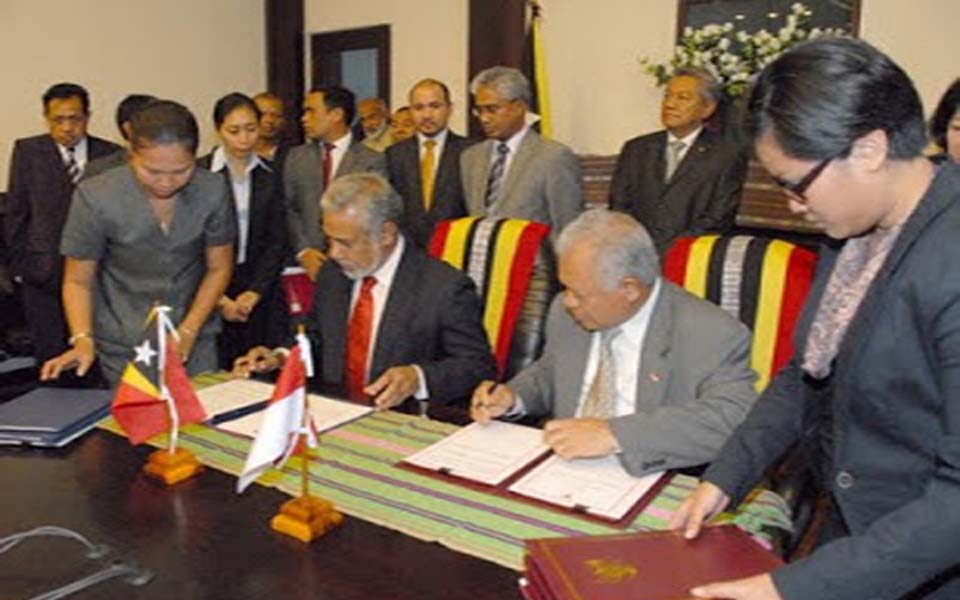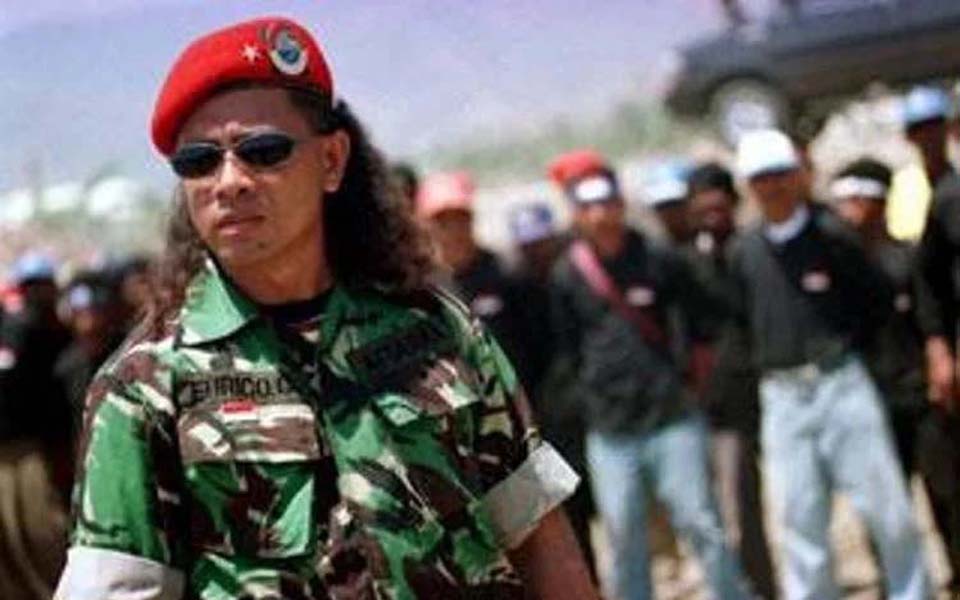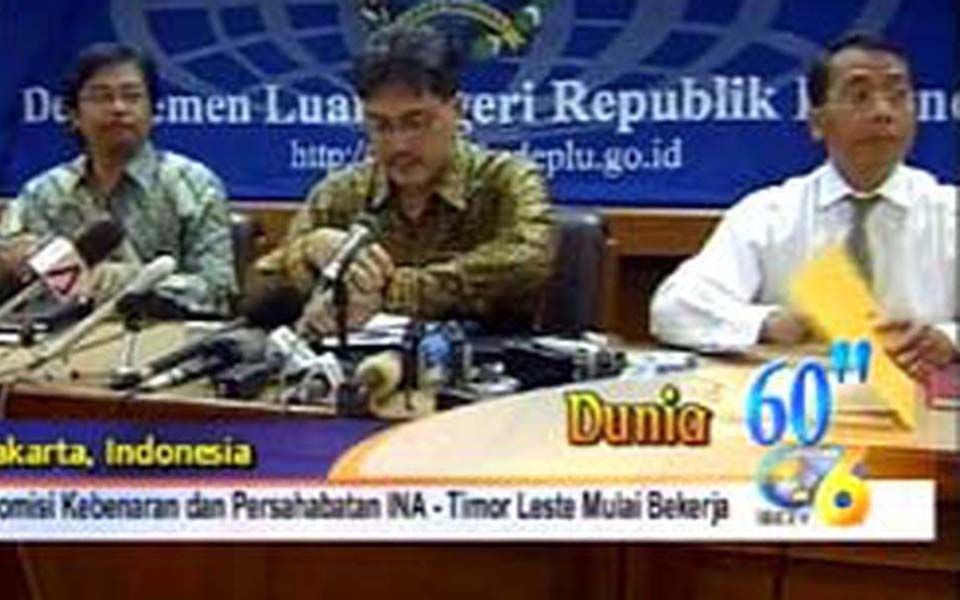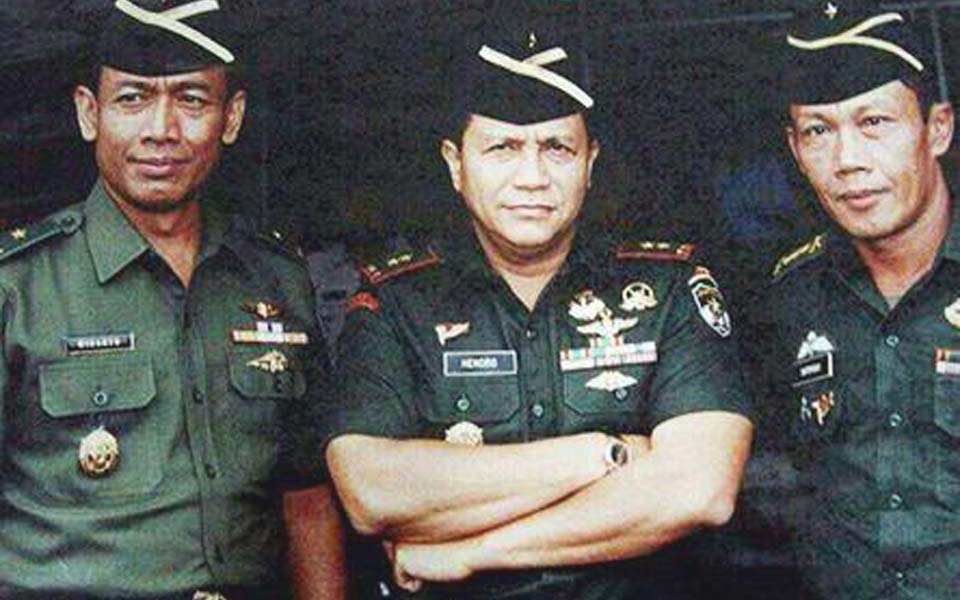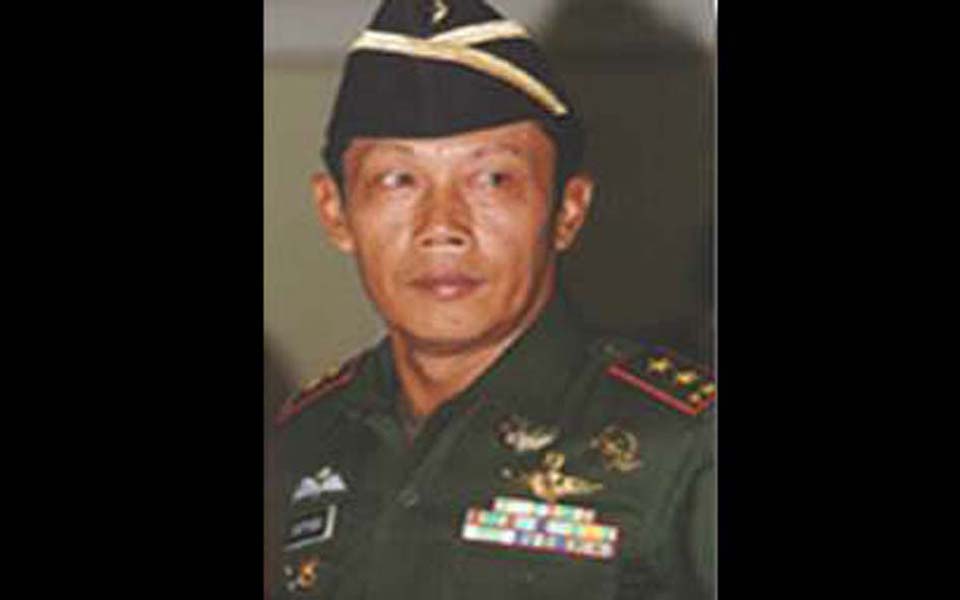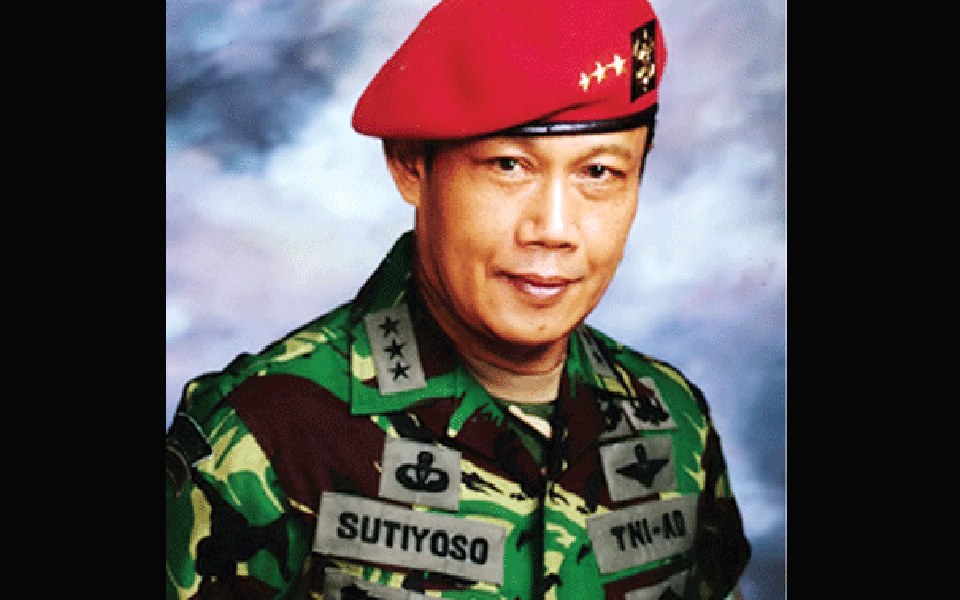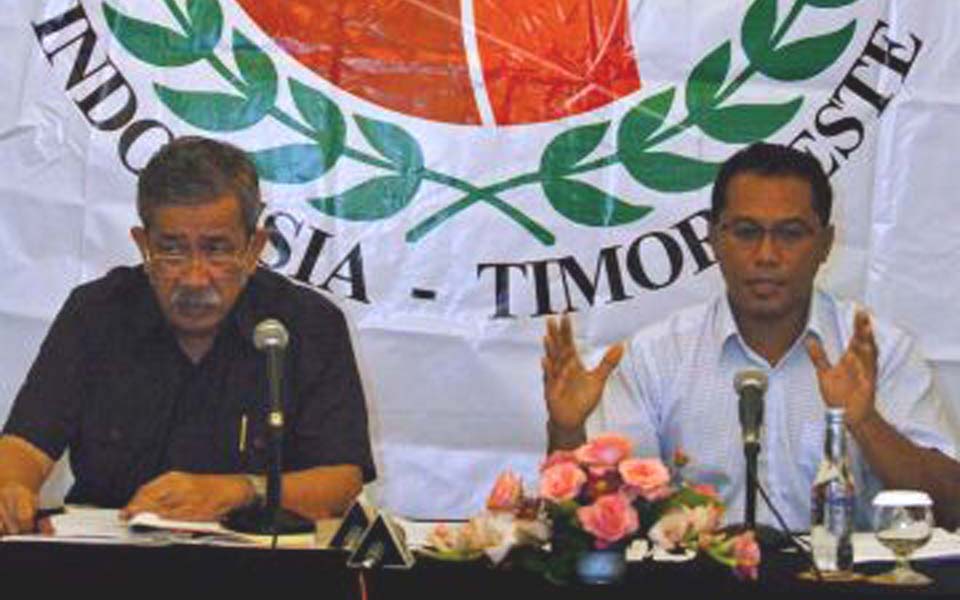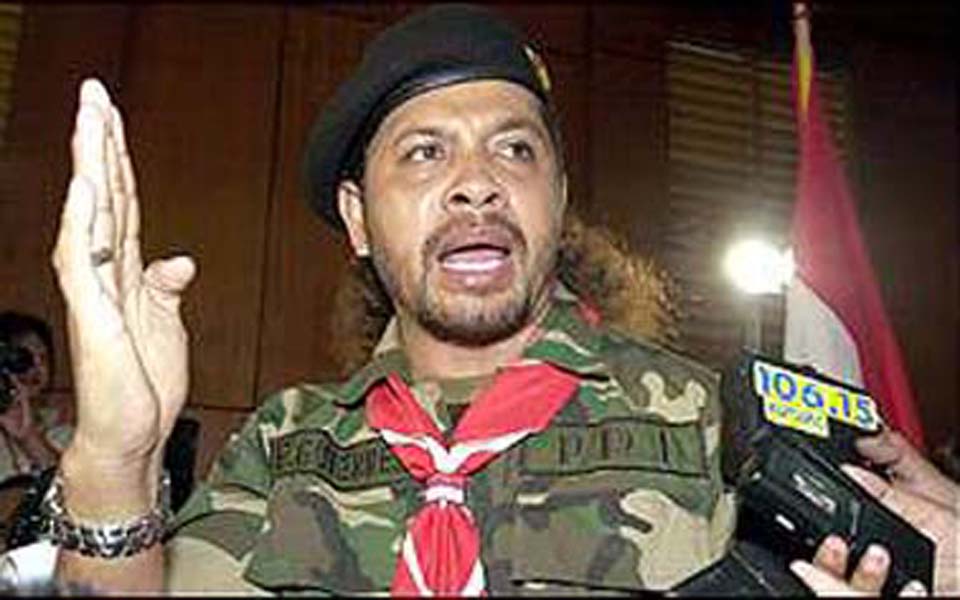Jakarta – A number of non-government organisations (NGOs) have declared their opposition to the formation of the Indonesia-East Timor Truth and Friendship Commission (KPP). Aside from being little more than a political tool for the perpetrators of crimes can evade justice, the NGOs believe that the commission will become a political bargaining tool for Indonesia and East Timor.
This was conveyed in a joint statement presented by Rafendi Djamin (Human Rights Working Group), Usman Hamid (Commission for Missing Persons and Victims of Violence, Kontras) and Agung Yudha (Institute for Human Rights Studies and Advocacy, Elsham) on Tuesday August 2.
The government has already announced the names of 10 commission members, comprising five people from Indonesia and five people from East Timor. The members from Indonesia are Benjamin Mangkoedilaga, Achmad Ali, Mgr Petrus Turang, Wisber Loeis and Agus Widjojo. The members from East Timor are Jacinto Alves, Diorinicio Babo, Aniceto Guterres, Felicidade Guterres and Cirilio Varadales. The commission will meet in Bali on August 4-5.
The NGOs believe that formation of the commission, which was announced by the Department of Foreign Affairs last Monday, is evidence that it will be difficult to create justice and uphold human rights in Indonesia. This view has been further strengthened by the lack of substantial changes in the commission’s terms of reference. The fact is that there has been criticism of the terms of reference since it was signing by the presidents of the two countries.
They believe that the terms of reference which have been agreed to have many weaknesses. For example, it does not differentiate between perpetrators and witnesses, it confuses those people who are responsible for serious and ordinary crimes and does not have any mechanisms to act on serious crimes. Amnesty can even be granted to perpetrators of crimes who would not be allowed such amnesty under international legal standards.
The formation of the commission is loaded with political interests. The human rights NGOs therefore oppose the formation of the commission unless there are amendments to its terms of reference. (SON)
[Translated by James Balowski.]





